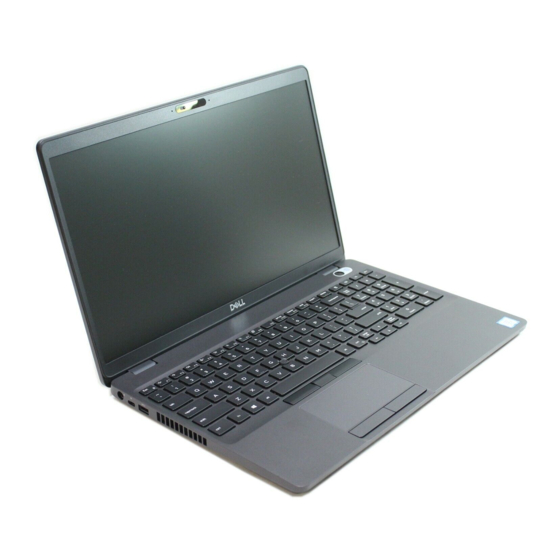- ページ 28
スイッチ Dell 5500 SeriesのPDF セットアップおよび仕様マニュアルをオンラインで閲覧またはダウンロードできます。Dell 5500 Series 40 ページ。 Dell networking 5500 gigabit ethernet switches
Dell 5500 Series にも: 仕様 (2 ページ), クイック・スタート・マニュアル (18 ページ)

Keys
Navigation
Tab
Moves to the next focus area.
Esc
Moves to the previous page until you view the main screen. Pressing Esc in the main screen displays a message
that prompts you to save any unsaved changes and restarts the system.
Boot Sequence
Boot sequence enables you to bypass the System Setup–defined boot device order and boot directly to a specific device (for example:
optical drive or hard drive). During the Power-on Self-Test (POST), when the Dell logo appears, you can:
•
Access System Setup by pressing F2 key
•
Bring up the one-time boot menu by pressing F12 key.
The one-time boot menu displays the devices that you can boot from including the diagnostic option. The boot menu options are:
•
Removable Drive (if available)
•
STXXXX Drive
NOTE:
XXXX denotes the SATA drive number.
•
Optical Drive (if available)
•
SATA Hard Drive (if available)
•
Diagnostics
NOTE:
Choosing Diagnostics, displays the ePSA diagnostics screen.
The boot sequence screen also displays the option to access the System Setup screen.
System setup options
NOTE:
Depending on the laptop and its installed devices, the items listed in this section may or may not appear.
General options
Table 31. General
Option
System Information
Battery Information
Boot Sequence
UEFI Boot Path Security
28
System setup
Description
Displays the following information:
•
System Information: Displays BIOS Version, Service Tag, Asset Tag, Ownership Tag,
Manufacture Date, Ownership Date, and the Express Service Code.
•
Memory Information: Displays Memory Installed, Memory Available, Memory Speed,
Memory Channel Mode, Memory Technology, DIMM A size, and DIMM B size
•
Processor Information: Displays Processor Type, Core Count, Processor ID, Current Clock
Speed, Minimum Clock Speed, Maximum Clock Speed, Processor L2 Cache, Processor
L3 Cache, HT Capable, and 64-Bit Technology.
•
Device Information: Displays Primary HDD, M.2 PCIe SSD-0, LOM MAC Address, Video
Controller, Video BIOS Version, Video Memory, Panel type, Native Resolution, Audio
Controller, Wi-Fi Device, and Bluetooth Device.
Displays the battery status health and whether the AC adapter is installed.
Allows you to specify the order in which the computer attempts to find an operating system from
the devices specified in this list.
This option controls whether or not the system will prompt the user to enter the Admin password
when booting a UEFI boot path from the F12 Boot Menu.
•
Always, Except Internal HDD—Default
•
Always, Except Internal HDD&PXE
•
Always
